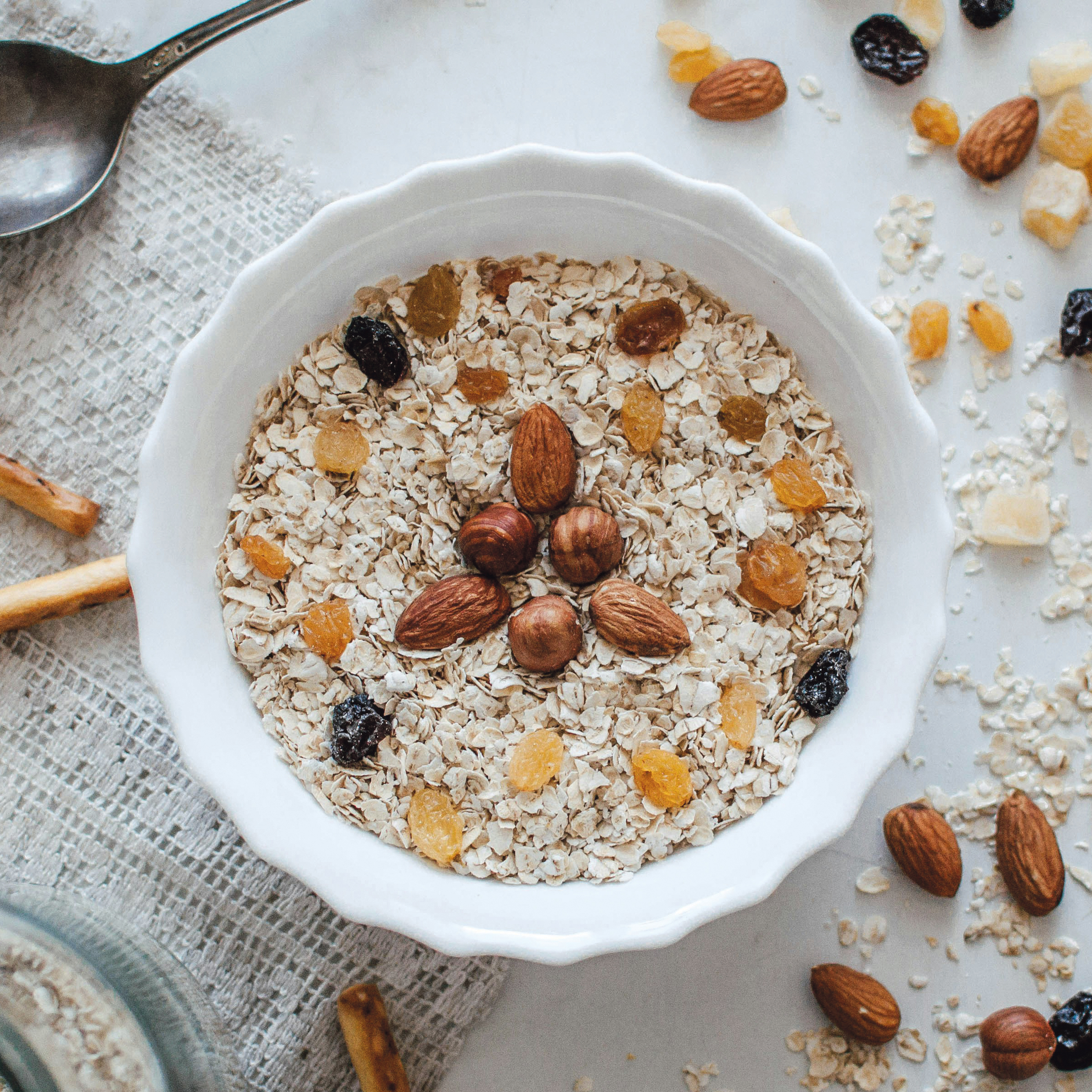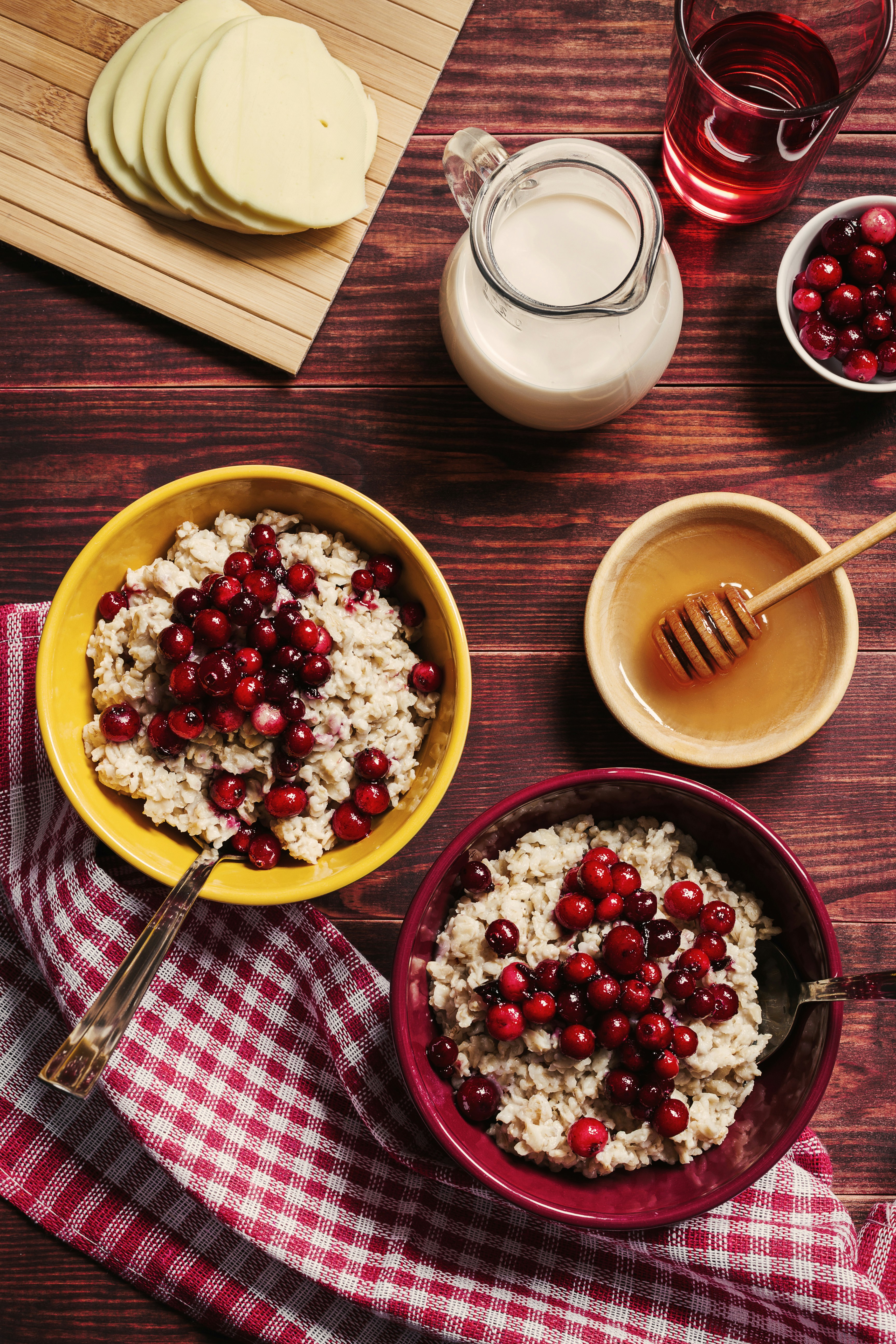Oats have long had a reputation for being one of the healthier foods you can choose for breakfast. But some people on social media have been calling this claim into question, suggesting that rather than being a healthy staple, oatmeal (and porridge, which is often made using oats) might in fact have no nutritional value whatsoever.
However, while these claims have garnered plenty of media attention, there’s little evidence to back them up. Rather, the science overwhelmingly shows that oats can be beneficial for your health in many ways.
One line of reasoning used to argue oats aren’t healthy is that eating them can lead to spikes in blood sugar (glucose). This seems to be linked to the rising use of glucose monitors by people who don’t have diabetes. These monitors may depict normal changes in blood glucose, which happen after we eat, as a “spike” in blood sugar.
Foods that contain carbohydrates (including starchy foods such as oats and other cereals) are broken down during digestion into sugar (mainly glucose but also fructose and galactose). As they are broken down the levels of sugar in the bloodstream begin to rise. This is a normal but important process – the sugar gives us immediate energy or it is stored by the muscles and liver cells for energy later.
Read more in Daily Maverick: Food Archives
Some foods take longer to digest, which means they spend more time in the stomach before reaching the intestines. As such, they will cause a smaller but more sustained rise in blood sugar. This can be better understood by looking at the glycaemic index, which rates foods based on how quickly they affect blood sugar levels.
The glycaemic index shows that the sugars in oatmeal and porridge are absorbed at about two-thirds the rate of sugar from white bread. This means oats are considered a medium glycaemic index food, similar to pasta but absorbed more slowly than many other breakfast cereals.
Generally, it is a good thing for food to be absorbed more slowly, since it is thought that this helps with appetite control. So, while your blood sugar may rise after eating oats, this rise is a normal part of the digestive process.
But while the glycaemic index tells us how quickly sugars are absorbed by the body, it doesn’t really look at the portion size of the food. The more carbs you eat in one go, the more it will increase your blood glucose levels after a meal – even if they are normal overall.
Cholesterol-lowering benefits
Oats are also a great source of fibre, which not only helps us stay full after eating but also keeps our bowel movements regular and healthy.
Oatmeal contains specific types of fibre called beta-glucans. These have been linked to lower risk of insulin resistance (associated with type 2 diabetes), weight gain, high blood pressure and high cholesterol. Beta-glucans are also linked with a lower risk of heart disease.
This cholesterol-lowering effect is the result of the way the beta-glucans bind to bile, a fluid that helps with digestion, in our intestine. This process reduces the amount of bile that can be reabsorbed into the body as cholesterol.
But in order to get these benefits from beta-glucans, you need to consume at least 3g of them daily. Given an average 30g serving of oats contains 1g of beta-glucans, pairing a bowl of porridge with other foods that are rich in beta-glucans (such as oat cakes and pearled barley) can help you get enough of these important fibres in your diet each day.
 Photo: Unsplash
Photo: Unsplash
Oatmeal and gut health
Oatmeal is a source of soluble fibre, which means it can be fermented by the bacteria in our digestive tract. This has led to suggestions that oats might be beneficial for our gut microbiome.
Emerging evidence suggests that as well as increasing numbers of bacteria linked to a healthy bowel, oatmeal may also help with production of short-chain fatty acids.
These are produced by bacteria and help nourish the cells in the colon. They may even help us to regulate our appetite and control blood fats and glucose, which may help reduce the risk of type 2 diabetes and heart disease.
Is all oatmeal healthy?
Although all oatmeal will contain fibre, how it’s milled can affect how quickly it’s digested. Instant oats are digested more quickly compared with rolled oats due to the way they’re milled.
Unlike other cereals, oats need steaming and heating before they can be cut or rolled. This is to stop enzymes breaking down the fats in the oats, which would cause rapid spoilage.
Oats can be rolled to make larger oat flakes, or cut first before rolling to make quick or instant oats. Larger (rolled) oats are digested more slowly than cut oats.
Making oatmeal with milk can add additional nutrients such as calcium, vitamin B12 and protein. But even if your porridge is made with water, oats are a good source of manganese, phosphorous and zinc, as it is. These are essential for hormone production, bone health and wound healing. So, although oats may not be fortified in the same way as other cereals, they contain valuable nutrients and fibre, and are far from nutrient-free.
Oats clearly have benefits. But what this debate highlights is that no food is perfect – or completely useless – for our health. We need to look beyond the positives and negatives of individual foods, even oatmeal, and look instead at how all the foods in our diet work together when it comes to our health. DM
First published by The Conversation.
Duane Mellor is the lead researcher for evidence-based medicine and nutrition at the Aston Medical School, Aston University.
This story first appeared in our weekly Daily Maverick 168 newspaper, which is available countrywide for R29.





 Go on, eat your porridge! Oats are, in fact, full of health benefits. Photo: Unsplash
Go on, eat your porridge! Oats are, in fact, full of health benefits. Photo: Unsplash